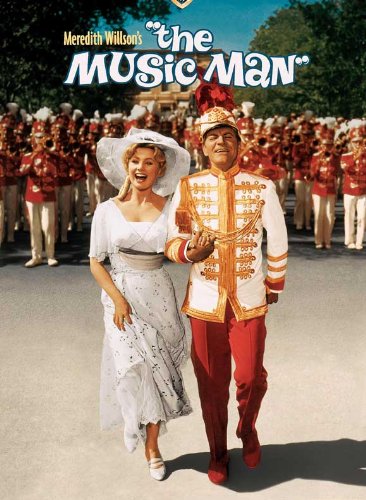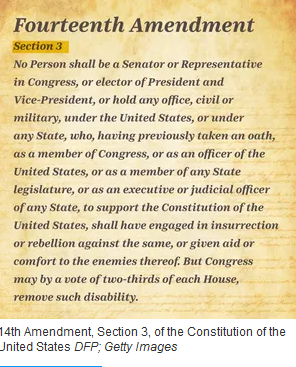
Who doesn’t love parade? Here in the United States, we are about to experience our annual plethora of parades. Throughout the land, We the People will celebrate our birth as a people and nation. As it turns out something similar occurred in ancient Israel when it became a kingdom. It too celebrated its birthday in history, of the creation of the people and not of the universe. The expression of that celebration lives on buried within the Hebrew Bible patiently waiting for it to be excavated if only biblical scholars would look.
The previous two blogs have addressed the topic of performance art and the Hebrew Bible (Is Morgan Freeman God? What Do Biblical Scholars Think? and All the World’s a Stage: Performing the Hebrew Bible). The idea of early Israel worshiping an anthropomorphic deity is a false one due to the failure to recognize that stories were performed. Just as Abiathar informed David of the words of the Lord without being mistaken for the deity, so too the chief priest spoke the words of the Lord to the king and the audience in the performance of the royal narrative without being mistaken for the deity.
So far two types of performance have been considered. The first is the individual storyteller perhaps at the threshing floor, the traditional sacred area, regaling/entertaining an audience while delivering a political message. In American terms, at our birth, broadsides, essays, and pamphlets would be read aloud when posted at the taverns throughout the land including the reading of the Declaration of Independence. One such reading in Manhattan led to the famous toppling of the statue of King George III. One suspects that in ancient Israel, Saul and Rehoboam didn’t fare ill with such storytellers either.
The second type of performance was the royal staged performance. It centered on the ark and not statue of the deity. These scenes involved the king, queen, and high priest and the occasional appearance of villains and messengers performing in various roles. The meaning of stories becomes quite different when you realize the same person could perform in multiple roles over the course of the seven-day royal drama. Imagine if the person who performed as the cobra uraeus in the garden that the man and women left also performed in the same costume as the Pharaoh in the garden the multitude left in the fourth cycle. This realization changes the meaning of the original stories and highlights the connections between them that text-alone scholars separate today.
It is with this multitude who left Egypt in mind that I now turn to the processions. Biblical scholars are familiar with processions in ancient times. Typically from what we know of ancient Egypt and Mesopotamia, the primary role of the people then was as spectators. The same applies for the inaugural of the American President. It is the king with the chief priest and attendants who do the actual moving including with a statue. The people remain fixed watching the procession pass before them.
The American July 4 parade provides a different model…as do Memorial Day and Thanksgiving Day. Yes, an official many lead the parade but it is the people of the community who march. High school bands, local store pavilions, veterans, and other civic, cultural, social, and ethnic organizations and people march in the community parade. If you don’t yourself then someone you know does – child, relative, friend. These parades with the American flag in the role of the statue of the deity help define the country. While we may take such people-based parades for granted, when they occurred in ancient Israel they were a political revolution which differentiated Israel from its neighbors.
The royal narrative continue three such processions.
Numbers 10:35 And whenever the ark set out, Moses said, “Arise, O Yahweh, and let thy enemies be scattered; and let them that hate thee flee before thee.” 36 And when it rested, he said, “Return, O Yahweh, to the ten thousand thousands of Israel.”
Joshua 6:7 And he (Joshua) said to the people, “Go forward; march around the city, and let the armed men pass on before the ark of Yahweh.”
2 Samuel 6:15 So David and all the house of Israel brought up the ark of Yahweh with shouting, and with the sound of the horn…. 17 And they brought in the ark of Yahweh, and set it in its place, inside the tent which David had pitched for it; and David offered burnt offerings and peace offerings before Yahweh. 18 And when David had finished offering the burnt offerings and the peace offerings, he blessed the people in the name of Yahweh of hosts, 19 and distributed among all the people, the whole multitude of Israel, both men and women, to each a cake of bread, a portion of meat, and a cake of raisins. Then all the people departed, each to his house.
These three processions defined Israel differently than its neighbors but it was a difference which did not last for long.
Typically biblical scholars do not link these three processions. They are well aware that the text describes processions or marching in all three instances but they are not aware that they are part of a whole that they bring to a conclusion the royal narrative. Let me explain.
First, the three processions share certain characteristics in common. Each involves the ark of Yahweh. Each involves a human male lead of renown, Moses, Joshua, and David, suitable roles for a king to perform. Each includes the participation of the people.
Second, the three processions mark a shift from a king-alone narrative to a more people based one with the focal point being the Exodus, the birth of the people Israel.
They witness the moment of deliverance at the birth of the people:
Exodus 14:13 And Moses said to the people, “Fear not, stand firm, and see the salvation of Yahweh, which he will work for you today.”
They ratify the covenant that defines them:
Exodus 24:3 Moses came and told the people all the words of Yahweh and all the ordinances; and all the people answered with one voice, and said, “All the words which Yahweh has spoken we will do.”
Exodus 24:7 Then he took the book of the covenant, and read it in the hearing of the people; and they said, “All that Yahweh has spoken we will do, and we will be obedient.”
So it should be no surprise that the people also are involved in the selection and rejection of the king: Saul at Gilgal, David at Hebron, and Rehoboam at Shechem.
1 Samuel 11:14 Then Samuel said to the people, “Come, let us go to Gilgal and there renew the kingdom.” 15 So all the people went to Gilgal, and there they made Saul king before Yahweh in Gilgal. There they sacrificed peace offerings before Yahweh, and there Saul and all the men of Israel rejoiced greatly.
2 Samuel 5:3 So all the elders of Israel came to the king at Hebron; and King David made a covenant with them at Hebron before Yahweh, and they anointed David king over Israel.
1 Kings 12:16 And when all Israel saw that the king did not hearken to them, the people answered the king, “What portion have we in David? We have no inheritance in the son of Jesse. To your tents, O Israel! Look now to your own house, David.” So Israel departed to their tents.
Considering that Israel had survived as a people for over two centuries without a king, the idea of the people (meaning clan leaders or elders) voicing their approval seems reasonable. The royal narrative incorporates the participation of the people into the performance itself.
Third, in this scenario, each of the three processions serves a separate role in the cosmic drama.
At first the ark and people venture out into the wilderness, the land of chaos. Here the ark is brought from Zion, outside the city walls as the people symbolically re-enact the wilderness journey of their ancestors following the birth of the people.
Second, the king and the people march around the city walls. Although the story being told is set in Jericho, the performance is in Jerusalem. The Israelites approach the walls of the city and the dialog ensues on the walls, possibly at the stone step structure. Now it is the Canaanite people represented by the queen who pronounce that they have heard but not seen what the Israelite people witnessed at their birth.
Joshua 2:8 Before they lay down, she [Rahab] came up to them on the roof, 9 and said to the men, “I know that Yahweh has given you the land, and that the fear of you has fallen upon us, and that all the inhabitants of the land melt away before you. 10 For we have heard how Yahweh dried up the water of the Red Sea before you when you came out of Egypt, and what you did to the two kings of the Amorites that were beyond the Jordan, to Sihon and Og, whom you utterly destroyed. 11 And as soon as we heard it, our hearts melted, and there was no courage left in any man, because of you; for Yahweh your God is he who is God in heaven above and on earth beneath.
In its revised canonical form, these verses are analogous to the famous words of President Abraham Lincoln at Gettysburg, an American sacred place when he said:
Fourscore and seven years ago our fathers brought forth…
Lincoln knew that many of the people in his audience and in the Union were immigrants or descendants of immigrants who had not brought forth a new nation fourscore and seven years earlier. But by standing for the Union now, so they were linked to those who were the descendants of the people who had brought forth the new nation on this continent. So it is each time an immigrant is naturalized. Something similar happened in ancient Israel when the Canaanite people represented by Rahab who were not part of original Israel now found a place in the new kingdom of Israel.
In its final form, these verses are a rebuff to the Jebusite priesthood and its god Elyon.
Genesis 14:18 And Melchizedek king of Salem brought out bread and wine; he was priest of God Most High. 19 And he blessed him and said, “Blessed be Abram by God Most High, maker of heaven and earth.
This role belongs to Yahweh not Elyon and it is David not Melchizedek who offers the blessing. One glimpses here an example of Jerusalem Throne Games, the battle for power through storytelling and supplementing the original royal narrative.
Then once again the people are called to action. The symbolic meaning of the circumnavigation of the city walls should be clear. Jerusalem, the capital city represents all the Canaanite cities which have become part of the Israelite kingdom. In effect, Yahweh through his ark, his king, and his people marks his turf. The deity from the South has entered the Promised Land and asserted his claim to it. The people, not the king, then voice the change which has occurred:
Joshua 6:16 And at the seventh time, when the priests had blown the trumpets, Joshua said to the people, “Shout; for Yahweh has given you the city.
The city of Jerusalem had not been considered part of Israel:
Judges 19:11 When they were near Jebus, the day was far spent, and the servant said to his master, “Come now, let us turn aside to this city of the Jebusites, and spend the night in it.” 12 And his master said to him, “We will not turn aside into the city of foreigners, who do not belong to the people of Israel; but we will pass on to Gibeah.”
Now it is. All that remains is for the ark to be installed and cosmos to be restored now with Yahweh at the cosmic center.
The third procession brings the royal narrative to a close. The ark, the king, and the people enter the city and celebrate in the feast. All is as it should be. The people rejoice and return home in peace.
Taken together the three processions form a mini-akitu. In addition, the mini-akitu from the first cycle and the final procession are part of the same story. The first cycle concludes with the blessing to the king performing as Noah; the entire royal drama concludes with another sacrifice and a blessing of the people by the king. This act of blessing by the king is a bit daring since normally such actions were considered the purview of the priests. One recalls how in the supplement to the flood story, Noah takes it up himself to bless and curse people (Gen. 9:18-29). Such actions could be considered playing with fire. Nonetheless, there appears to be no downside here to the king himself speaking in the name of the Lord.
The narrative concludes with a people at peace in celebration of life. The ark is in the tent and not the temple because the temple had not yet been built. I suspect this royal narrative was only performed once. The kingdom of Israel with its capital at Jerusalem did not long endure. How many kings had the charisma to pull off a performance like this anyway and were closely associated with the ark? There is only one choice which is why I call this royal narrative from garden to Zion performed over the seven-day New Year festival the King David Bible.




